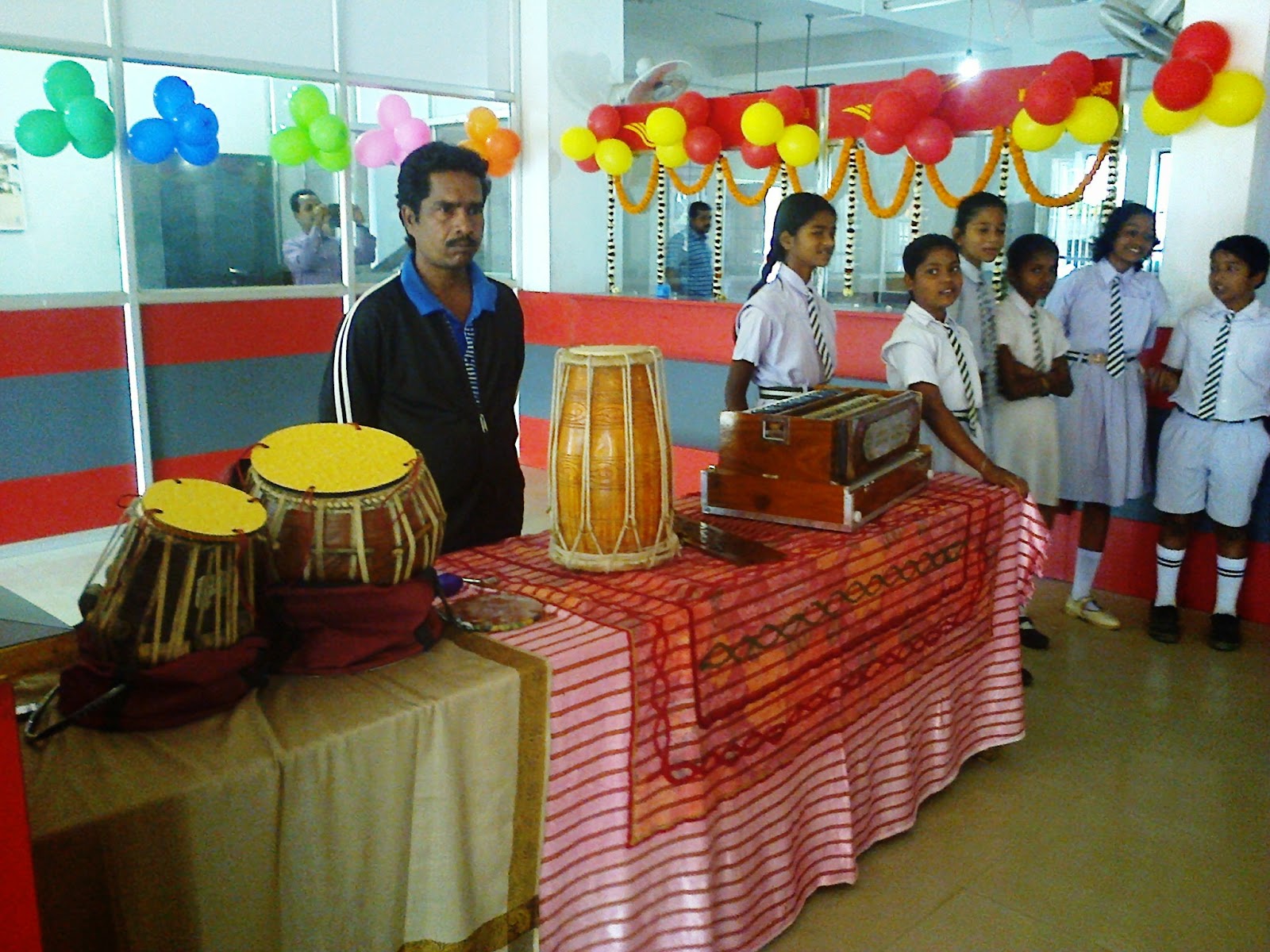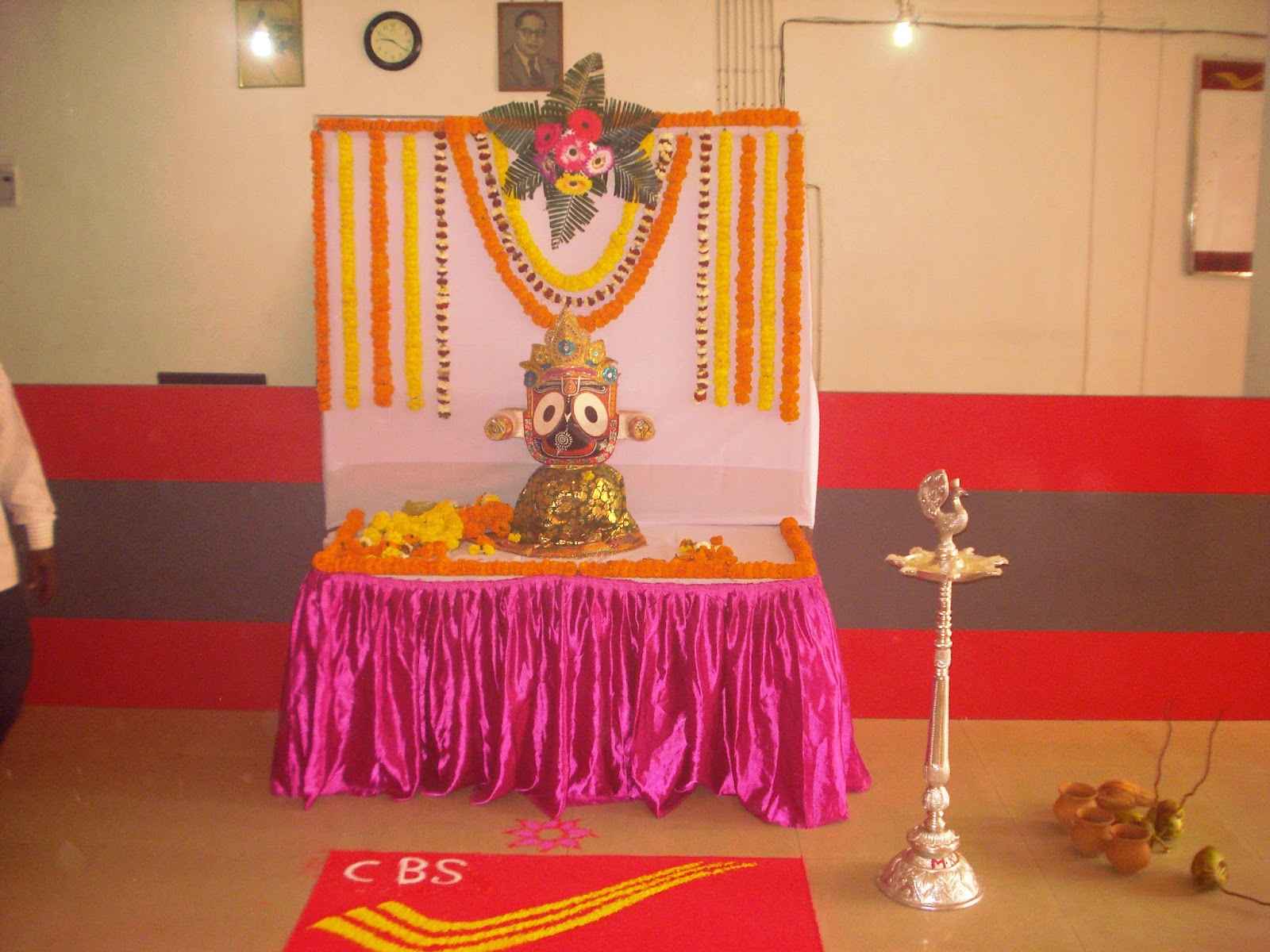Saturday, 11 April 2015
Wednesday, 8 April 2015
Central Government approved 6% DA and DR to CG Employees and Pensioners from Jan 2015
Central Government approved 6% DA and DR to CG Employees and Pensioners from Jan 2015
Finally yesterday afternoon only, the Union Cabinet gave its approval to release of an another additional Dearness Allowance with effect from 1.1.2015 to Central Government Employees and Pensioners.
According to the DA Calculation recommended by the 6th Pay Commission, Central released 6% of additional Dearness Allowance / Dearness Relief over the existing of 107% of the Basic Pay / Pension with effect from 1st Jan 2015 to CG Employees / Pensioners.
Now, Central Government employees as well as pensioners are entitled for DA/DR at the rate of 113 percent of the basic pay with effect from 01.01.2015. The arrears for three months from January to March 2015 will be paid after the formal orders issued by Finance Ministry.
Cabinet Approved 6% DA to CG Employees and Pensioners from 1.1.2015
Release of additional installment of Dearness Allowance to Central Government employees and Dearness Relief to Pensioners, due from 1.1.2015
The Union Cabinet chaired by the Prime Minister, Shri Narendra Modi, today gave its approval to release an additional installment of Dearness Allowance (DA) to Central Government employees and Dearness Relief (DR) to pensioners with effect from 01.01.2015 at the rate of six percent increase over the existing rate of 107 percent.
Hence, Central Government employees as well as pensioners are entitled for DA/DR at the rate of 113 percent of the basic pay with effect from 01.01.2015. The increase is in accordance with the accepted formula based on the recommendations of the 6th Central Pay Commission.
The combined impact on the exchequer on account of both DA and DR would be of the order of Rs. 6762.24 crore per annum and Rs. 7889.34 crore in the Financial Year 2015-16 ( i.e. for a period of 14 months from January 2015 to February 2016).
This will benefit 48 lakh government employees and 55 lakh pensioners.
Saturday, 4 April 2015
Postal bank set to become a reality, says Rajan
The country will see many new banks in the coming years, including a postal bank promoted by the postal department, Reserve Bank of India (RBI) governor Raghuram Rajan said on Thursday.
Speaking on the occasion of commemorating 80 years of the central bank, the governor said, “In the coming year, we will have many new players in the banking eco-system, such as payments banks, small finance banks and possibly a postal bank competing with existing universal banks, regional rural banks, cooperative banks, and a variety of non-bank finance companies.”
The department of posts has already applied for a payments bank licence after RBI initiated the licensing process last year. Payments banks are niche banks which will be allowed to function with several restrictions; they will not be allowed to lend and will have a cap on the deposit it can take from an individual. A postal bank, if it gets a licence from RBI, will be a universal bank.
A task force under T S R Subramanian for suggesting ways to leverage the post office network has recommended that the government set up a holding company under the department of posts for immediate roll-out of banking, insurance and e-commerce services through India’s 155,000 post offices. The task force had submitted its recommendation last December.
Rajan also said the central bank has successfully developed a liquid government bond market, which gave the government the confidence to think of issuing 40-year bonds. “The rupee is truly becoming international, as foreign institutions queue up to issue rupee-denominated bonds. New products supported by RBI, such as the recently introduced interest rate futures contract, are doing roaring business on exchanges,” he said.
The former chief economist of the International Monetary Fund (IMF), however, also said the task of the central bank is far from over, particularly so far as infrastructure financing is concerned. He also reminded that banks already have too much exposure to infrastructure while big corporate infrastructure players have also taken too much debt.
“Going forward, we need to develop new sources of risk capital so that our infrastructure needs can be financed with a moderate amount of debt, even as we help the system deleverage,” he said.
In his speech as the chief guest at the function, Prime Minister Narendra Modi highlighted the need to extend finance to the poor.
Modi urged RBI to take the lead in encouraging financial institutions to set concrete targets for financial inclusion over the next 20 years, to help transform the quality of life of the poor.
“I come as a representative of the poor, underprivileged, marginalised and tribals; I am one among them; I seek on their behalf and trust you will not disappoint me,” Modi said.
The Prime Minister also downplayed any tension between the central bank and the government over several recent proposals, including shifting of the debt management function from RBI to an independent agency.
Modi said the governor meets him once in two months and he found Rajan’s presentations simple and easy to understand.
“What this means is that maybe government and RBI’s thoughts are similar and this is possible because of that. I believe that this is very necessary and I as a representative of the government express my satisfaction on this issue,” Modi said. Modi said along with economic and social parameters, there is a need to think of a geographical parameter as well for financial inclusion. He said eastern India had immense economic potential, and the banking sector should recognise and plan for this.
The Prime Minister said the success of the Pradhan Mantri Jan Dhan Yojana and the Direct Benefit Transfer of LPG subsidy, had shown the potential of the enormous role that the banking sector can play in ensuring financial inclusion.
Source : http://www.business-standard.com/article/finance/postal-bank-set-become-a-reality-says-rajan-115040200936_1.html
Friday, 27 March 2015
Monday, 16 March 2015
Government employees may get LTC to visit SAARC nations
Central government employees may get to visit some SAARC nations barring Pakistan under new Leave Travel Concession (LTC) rules being finalised by the Centre.
"Employees will be able to avail LTC to visit some SAARC countries. A proposal in this regard is being finalised by the government," Union Minister Jitendra Singh told .
LTC allows grant of leave and ticket reimbursement to eligible central government employees.
The decision has been taken to promote people-to-people contact and boost tourism among the SAARC regions, he said.
"The government has been taking many steps to promote trade and travel. This is one of such steps to further boost ties among SAARC nations," said Singh, Minister of State for Personnel, Public Grievances and Pensions.
The South Asian Association for Regional Cooperation (SAARC) is a group of eight nations comprising Bangladesh, Bhutan, Maldives, Nepal, Pakistan, Sri Lanka, Afghanistan and India.
Officials in the Personnel Ministry said the LTC facility will not be available for visiting Pakistan and few other nations due to security concerns.
The draft for new LTC rules is in initial stage and it will be finalised after inter-ministerial consultations, they said.
"One of the major decisions taken by the Narendra Modi government soon after it took over was to extend the facility of conversion of 'home town' LTC to visit states of Jammu & Kashmir, northeastern region and Union Territory of Andaman & Nicobar for a further period of two years up to September 25, 2016," the Minister said.
The Personnel Ministry has been regularly reviewing LTC rules to allow government employees to visit unexplored places like northeast. The ministry is also considering allowing government servants not entitled to travel by air to fly in economy class.
The ministry has of late put in place measures to check misuse of LTC facility. CBI is probing fake travel bills scam (LTC scam) allegedly involving certain government employees and present and former Members of Parliament.
"All the ministries or departments are advised to bring it to the notice of all their employees that any misuse of LTC will be viewed seriously and the employees will be liable for appropriate action under the rules.
"In order to keep a check on any kind of misuse of LTC, ministries or departments are advised to randomly get some of the air tickets submitted by the officials verified from the airlines concerned with regard to the actual cost of air travel vis-a-vis the cost indicated on the air tickets submitted by the officials," according to an order issued by the Personnel Ministry.
No proposals to increase working days to 6 per week: Govt
New Delhi: The government on Friday said it has no proposals to shift to six-day week working for its offices or reduce the retirement age of employees to 58 years.
"At present, there is no proposal to change working days for the Central government offices from five to six days a week or to reduce the retirement age of the Central government employees to 58 years," Finance Minister Arun Jaitley said in a written reply to the Lok Sabha.
At present, the retirement age of the Central government employees is 60 years.
The Minister also said that the Seventh Central Pay Commission appointed in February 2014 is required to make its recommendations within 18 months from the date of its constitution.
Former Supreme Court Justice Ashok Kumar Mathur is the Chairman of the Commission.
The government constitutes Pay Commission almost every ten years to revise the pay scales of its employees and often these are adopted by states after some modification.
The Sixth Pay Commission was implemented with effect from January 1, 2006
Monday, 16 February 2015
Subscribe to:
Posts
(
Atom
)































































